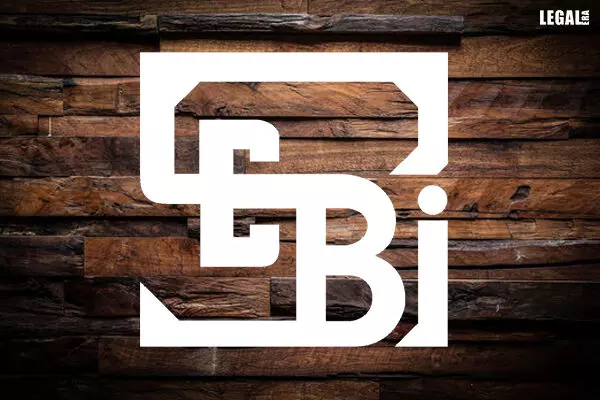- Home
- News
- Articles+
- Aerospace
- Agriculture
- Alternate Dispute Resolution
- Banking and Finance
- Bankruptcy
- Book Review
- Bribery & Corruption
- Commercial Litigation
- Competition Law
- Conference Reports
- Consumer Products
- Contract
- Corporate Governance
- Corporate Law
- Covid-19
- Cryptocurrency
- Cybersecurity
- Data Protection
- Defence
- Digital Economy
- E-commerce
- Employment Law
- Energy and Natural Resources
- Entertainment and Sports Law
- Environmental Law
- FDI
- Food and Beverage
- Health Care
- IBC Diaries
- Insurance Law
- Intellectual Property
- International Law
- Know the Law
- Labour Laws
- Litigation
- Litigation Funding
- Manufacturing
- Mergers & Acquisitions
- NFTs
- Privacy
- Private Equity
- Project Finance
- Real Estate
- Risk and Compliance
- Technology Media and Telecom
- Tributes
- Zoom In
- Take On Board
- In Focus
- Law & Policy and Regulation
- IP & Tech Era
- Viewpoint
- Arbitration & Mediation
- Tax
- Student Corner
- AI
- ESG
- Gaming
- Inclusion & Diversity
- Law Firms
- In-House
- Rankings
- E-Magazine
- Legal Era TV
- Events
- News
- Articles
- Aerospace
- Agriculture
- Alternate Dispute Resolution
- Banking and Finance
- Bankruptcy
- Book Review
- Bribery & Corruption
- Commercial Litigation
- Competition Law
- Conference Reports
- Consumer Products
- Contract
- Corporate Governance
- Corporate Law
- Covid-19
- Cryptocurrency
- Cybersecurity
- Data Protection
- Defence
- Digital Economy
- E-commerce
- Employment Law
- Energy and Natural Resources
- Entertainment and Sports Law
- Environmental Law
- FDI
- Food and Beverage
- Health Care
- IBC Diaries
- Insurance Law
- Intellectual Property
- International Law
- Know the Law
- Labour Laws
- Litigation
- Litigation Funding
- Manufacturing
- Mergers & Acquisitions
- NFTs
- Privacy
- Private Equity
- Project Finance
- Real Estate
- Risk and Compliance
- Technology Media and Telecom
- Tributes
- Zoom In
- Take On Board
- In Focus
- Law & Policy and Regulation
- IP & Tech Era
- Viewpoint
- Arbitration & Mediation
- Tax
- Student Corner
- AI
- ESG
- Gaming
- Inclusion & Diversity
- Law Firms
- In-House
- Rankings
- E-Magazine
- Legal Era TV
- Events
SEBI proposes tweaking UPSI to bring transparency and uniformity to listed companies

SEBI proposes tweaking UPSI to bring transparency and uniformity to listed companies
Seeks comments by 2 June from the public on its proposal
The Securities and Exchange Board of India (SEBI) has proposed to modify the current definition of unpublished price sensitive information (UPSI) to bring regulatory certainty and uniformity in compliance for the listed companies.
The proposal was initiated after the markets regulator noticed the "judgment exercised by the listed entities in terms of the categorising announcement as UPSI and consequent compliance with the spirit of the law, are not found to be adequate."
In the consultation paper, SEBI suggested amending the current definition of UPSI. The disclosures were to be brought under Regulation 30 of Listing Obligations and Disclosure Requirements (LODR).
Under the regulation, the listed entities are required to disclose to the stock exchanges all related events or information within 24 hours. These include acquisition, agreement, fraud, or default by promoters and key managerial personnel, any alteration in securities, revision in ratings, initiation of forensic auditing, and change in director and key managerial personnel.
Additionally, under the rules, the listed entities must disclose the outcome of the board meeting pertaining to dividends, financial results and voluntary delisting within 30 minutes of the closure of the meeting.
On multiple instances, SEBI observed that an information/event, which should have been categorised as UPSI, was not done by the listed entities. Along with the stock exchanges, it carried out a study to identify the announcements and information the companies were categorising as UPSI.
The markets regulator analysed about 1,100 press releases made by the top 100 listed companies between January 2021 and September 2022.
It found that in 227 instances, the price movement in the scrip, adjusted for the movement in the Nifty/Sensex was more than 2 percent. And merely 8 percent (18) of these press releases were categorised as UPSI by the listed companies. Of the total press releases, only 1.64 percent were categorised as UPSI.
In a case of alleged insider trading by an employee of a company, the employee contended that if his company did not consider the information as UPSI, he had no reason to dispute. This highlighted the fact that companies were not exercising due diligence.
SEBI’s surveillance system also generated a significant number of alerts on suspected insider trading cases. It observed that a substantial number of entities made notional profits, sometimes exceeding Rs.25 crores.
However, a significant number of these could not be examined further due to the non-categorisation of material information as UPSI by the companies.
In March, during its board meeting, SEBI approved the proposal for review and rationalisation of the disclosure of material events or information by the listed entities. The changes included the introduction of quantitative thresholds for determining the 'materiality' of events/information, and disclosure for certain types of agreements binding listed entities.
The changes are aimed at bringing in more transparency and ensuring timely disclosure of material events or information by the entities.



